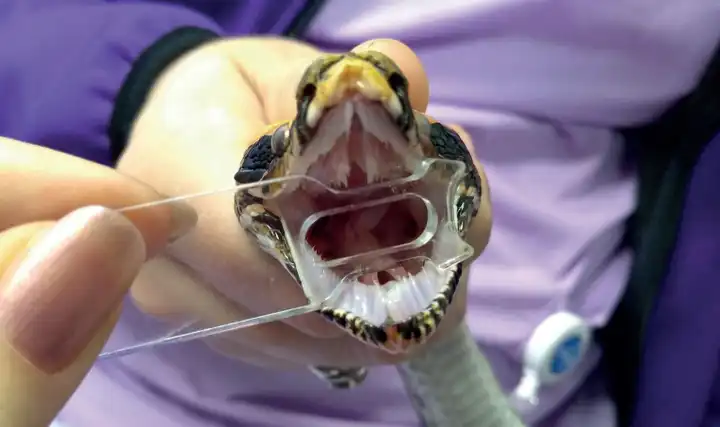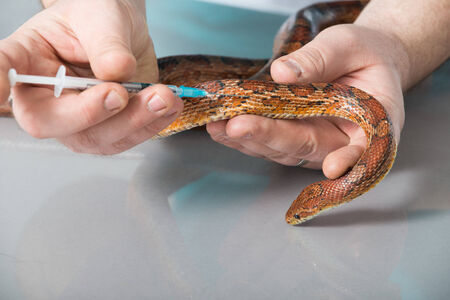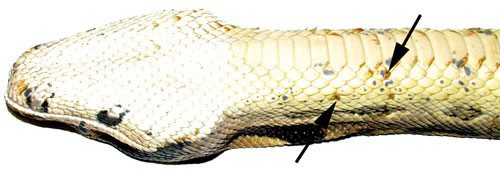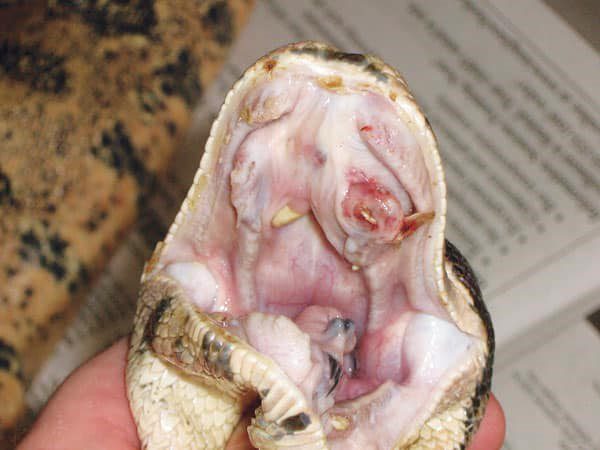Snakes in captivity are prone to various diseases that can affect their health and productivity. Common conditions include respiratory infections, parasites, and metabolic disorders. Successful snake farmers and breeders in countries like Indonesia and South Africa implement strict health management to minimize disease outbreaks.
Respiratory Infections
Snakes often develop respiratory infections due to poor ventilation, incorrect humidity, or temperature fluctuations. Symptoms include wheezing, mucus discharge, and open-mouth breathing. Treating infections requires adjusting the environment and administering veterinary-prescribed antibiotics. Farmers prevent respiratory illnesses by maintaining stable temperatures and humidity levels.

Parasitic Infections
Internal parasites, such as roundworms, and external parasites, like mites, can weaken snakes and cause weight loss. Infected snakes may appear lethargic or refuse to eat. Regular deworming and cleaning enclosures with disinfectants help control infestations. Successful farms in Thailand use quarantine procedures to prevent new snakes from spreading parasites.

Inclusion Body Disease (IBD)
IBD is a fatal viral disease affecting boas and pythons. Snakes with IBD show neurological signs such as head tremors and loss of coordination. Since there is no cure, affected snakes must be isolated to prevent transmission. Farms breeding high-value snakes, such as ball pythons, conduct regular health screenings to detect early signs.

There is more about Snake farming but you should know that, at Kimd Group of Companies, we support beginner farmers by offering tailored business proposal writing services and design plans for various animal capacities. Therefore whether you’re just starting out or looking to expand, we provide the resources and expertise to help you succeed in the farming industry.
Mouth Rot (Infectious Stomatitis)
Mouth rot is a bacterial infection caused by injuries or poor hygiene. Affected snakes develop swollen, pus-filled mouths and may stop eating. Treatment involves cleaning wounds and administering antibiotics. Proper enclosure hygiene and careful handling reduce the risk of mouth rot.

Conclusion
Preventing snake diseases requires maintaining clean environments, monitoring health regularly, and seeking veterinary care when needed. By implementing strict biosecurity measures, farmers can ensure their snakes remain healthy and productive.
